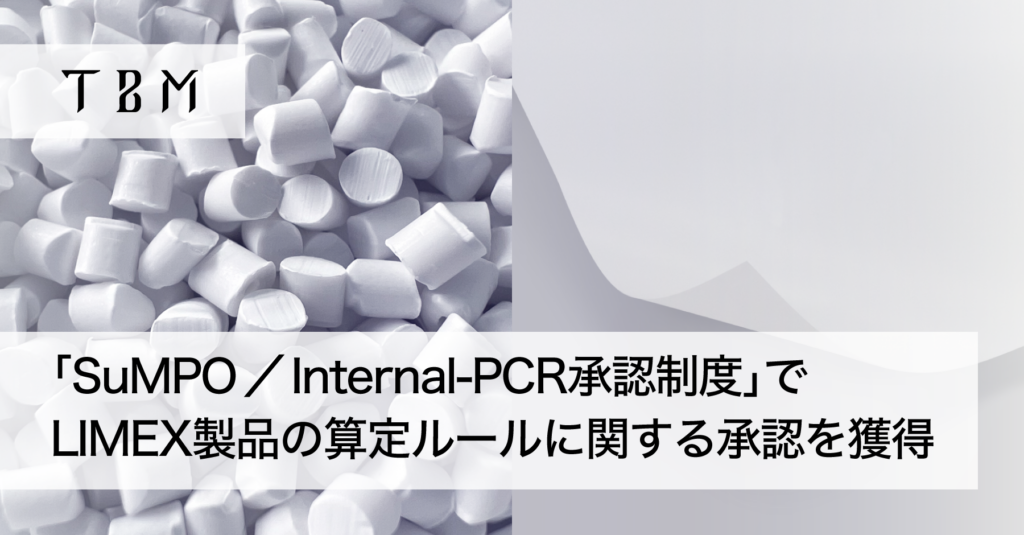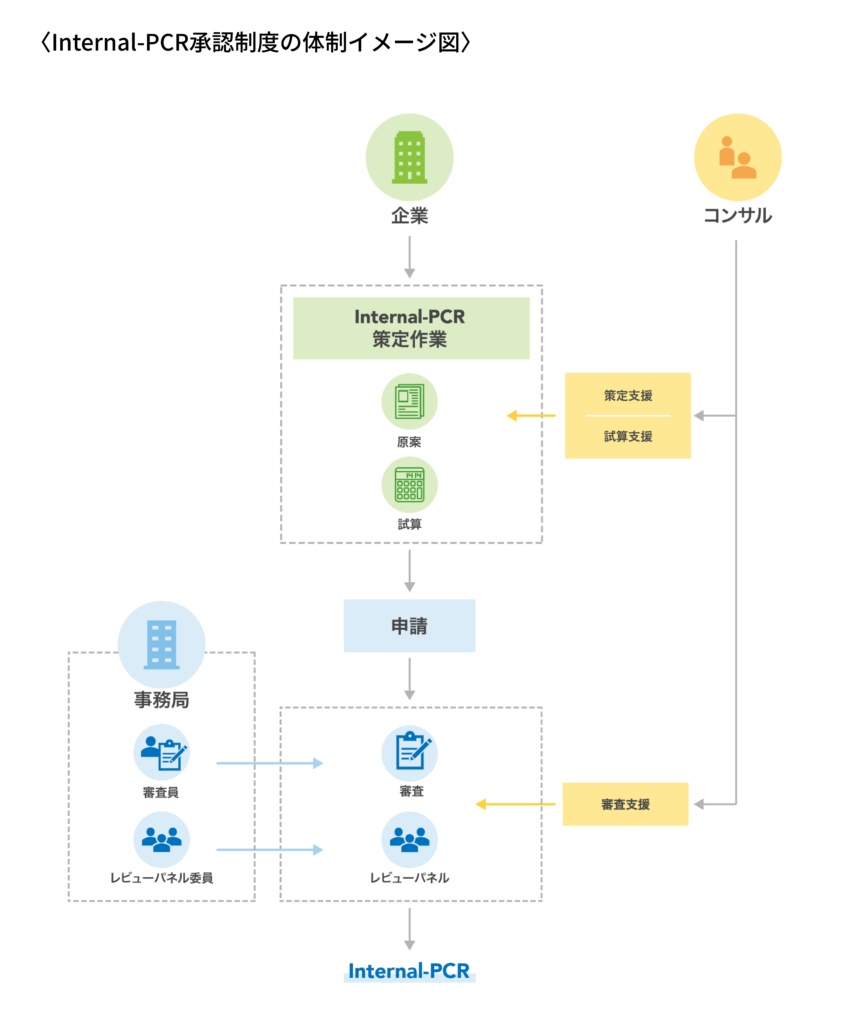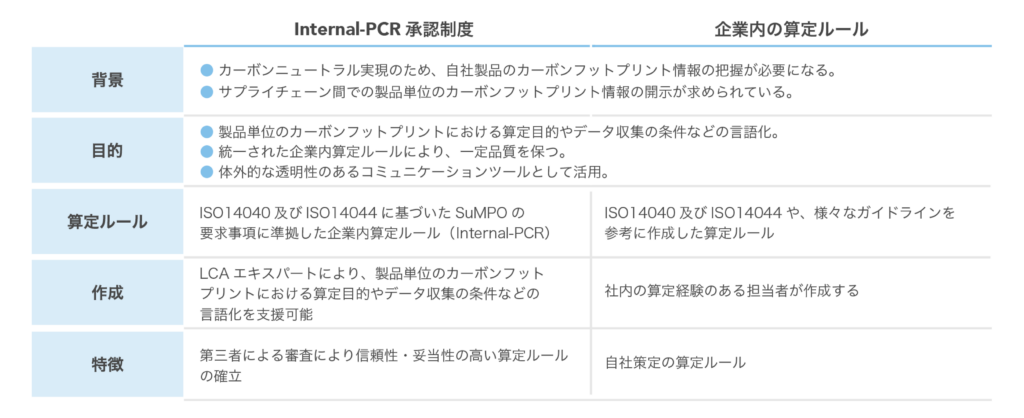Press release
- LIMEX
- TBM
TBM receives first approval under "SuMPO/Internal-PCR Approval System" for carbon footprint calculation rules for LIMEX products
- Improved reliability of product information through approval of calculation rules based on international standards -

TBM Co., Ltd., Ltd. (Head office: Chiyoda-ku, Tokyo, CEO: Atsuyoshi Nobuyoshi, hereinafter referred to as TBM) is pleased to announce that it has received approval for its carbon footprint calculation rules for LIMEX products under the "SuMPO/Internal-PCR Approval System" run by the Sustainable Management Promotion Organization (Head office: Chiyoda-ku, Tokyo, CEO: Takehisa Kabeya, hereinafter referred to as SuMPO).
■ What is the "SuMPO/Internal-PCR Approval System"?
Internal-PCR refers to PCRs (Product Category Rules: rules for calculation and communication of carbon footprint* etc. for specific product categories) that are created for internal use. The purpose of the "SuMPO/Internal-PCR Approval System" is to promote visualization of environmental information of your products and internal and external communication using carbon footprint, which is environmental information, to move towards carbon neutrality by building and operating highly reliable and valid Internal-PCRs.
In recent years, as efforts to achieve carbon neutrality have accelerated, in addition to the movement to calculate, disclose, and reduce emissions across an organization, such as Scope 1, Scope 2, and Scope 3, sharing carbon footprint information for each product has become important in product trading. However, rules for collecting and calculating carbon footprint data are often underdeveloped, and it has been pointed out that there are disparities between and within companies in the efficiency of calculation work, the reliability of calculation results, and the clarity of how the results are communicated. To solve these problems, there is a need to establish rules for carbon footprint calculations that ensure reliability and validity.
SuMPO, which operates this system, has been practicing LCA for over 20 years and can guarantee this. Specifically, SuMPO will approve that the calculation rules are in accordance with ISO 14040 and ISO 14044, the international standards for life cycle assessment (LCA) that form the basis for calculating carbon footprints.

*Carbon footprint: The amount of greenhouse gases emitted during the life cycle of a product or service, converted into CO2.
・SuMPO/Internal-PCR Approval System Overview

(Related site) "Internal-PCR Approval System" official page
■ Overview of this initiative
We have recently received approval for the calculation rule for LIMEX, TBM's main product, under the "SuMPO/Internal-PCR Approval System." We have been working on carbon footprint calculations for LIMEX, an environmentally friendly material developed using our own technology, with the help of external experts, including SuMPO, and by formulating and obtaining approval for the Internal-PCR, we expect to further improve the reliability and validity of our calculations.
Going forward, we will continue to operate Internal-PCR with a view to applying it to the "SuMPO/Third-Party Certified Carbon Footprint Comprehensive Accounting Scheme" and the "SuMPO Environmental Label Program."
■ TBM's carbon footprint calculation and LCA initiatives
At TBM, we proactively utilize life cycle assessment (LCA), a method for scientifically and quantitatively evaluating the environmental impact of a product or service throughout its life cycle or at a specific stage in order to comprehensively understand and reduce not only the environmental impact caused by our own company but also that caused upstream and downstream in the supply chain.
Since conducting an LCA in collaboration with the Oki Laboratory of the Institute of Industrial Science, University of Tokyo in 2016, we have conducted LCAs of molded products using LIMEX Sheet and LIMEX Pellet with the Japan Environmental Management Association for Industry (JEMAI) from 2018 to 2019, and have been working on LCAs in cooperation with SuMPO, which took over the industrial support division of JEMAI since 2020. During the development and manufacturing stages, we use this LCA method to quantify the environmental impact at each stage of the product's life cycle, understand the characteristics of the environmental impact of each product, understand room for improvement, and confirm the effects of improvement. We also disclose information on the environmental impact by publishing the results of the LCA calculations in the "LIMEX Innovation Report," a report that covers everything from the technical background to the environmental performance of LIMEX.
(Related sites) TBM Sustainability Page, LIMEX Innovation Report
